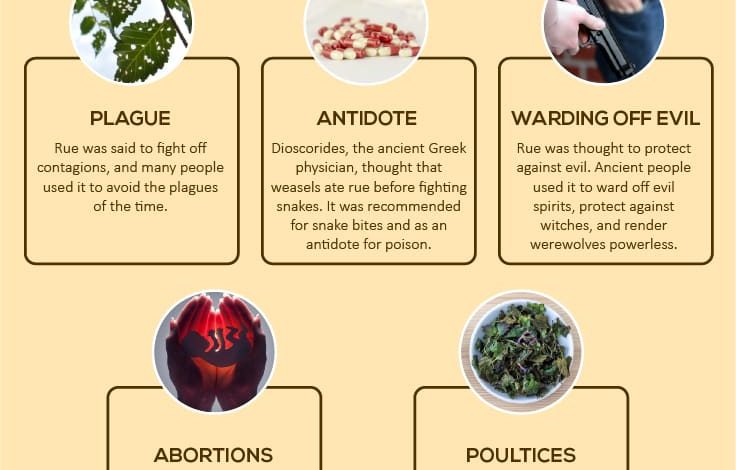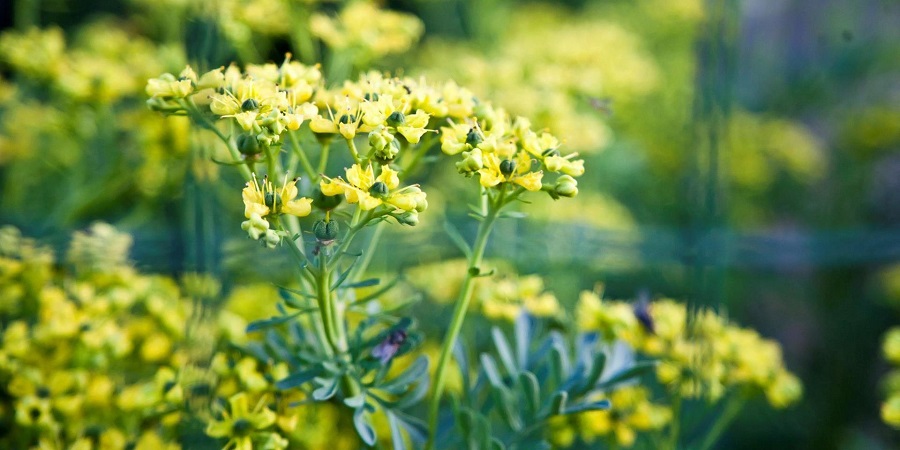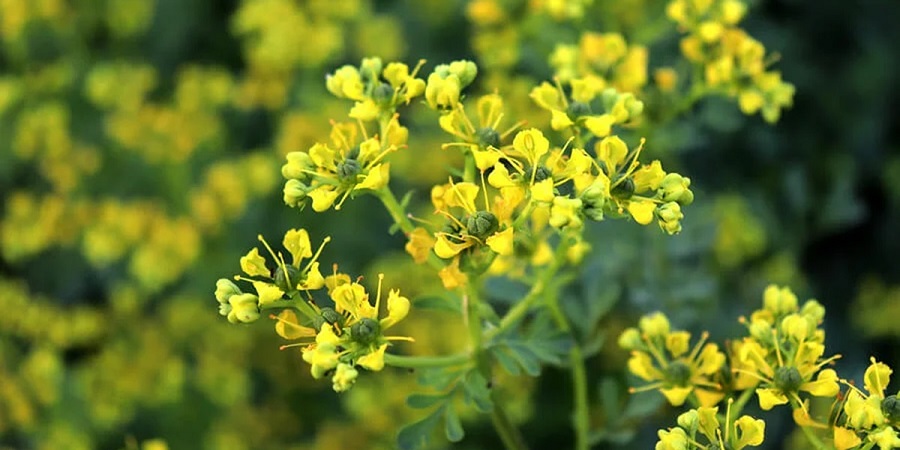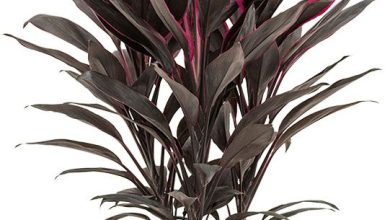Rue: characteristics, health benefits and contraindications

Rue is a very interesting plant, since it is considered therapeutic for different conditions of the body, however, it is also associated with negative effects on health, for this reason, it is good to thoroughly review what its benefits are and how to prevent possible ones. side effects.
Although it seems very popular, the truth is that some of us do not know what rue is, so it is worth developing a definition. Among the genera of perennial subshrubs, the rue plant is one of the most widely used throughout the world. It is native mainly to the Mediterranean, but can also be found in the North Atlantic archipelagos, as well as in Southwest Asia. Although there are about 40 species , the best known is the Ruta graveolens, originally from southern Europe, but currently cultivated in many other regions.
One of the doubts surrounding this plant is how to differentiate male rue from female rue, however, we must clarify that this herb does not have sexual dimorphism , because each flower contains both male and female organs.
Rue is widely used as an ornamental plant, not only because it stays green all year round, but also because it produces very striking yellow flowers, which appear in spring and last until summer. In addition, it is worth mentioning that it supports pruning well, which is why it allows hedges to delimit spaces in the garden. On the other hand, it is also possible to grow rue indoors, both in a pot and in a window box, as long as there is sunlight. Let’s see what rue is for and what precautions we should take.
1. It is good for digestion
In Central America and other regions of the world, many people tend to attribute therapeutic properties related to the digestive system to rue. In this sense, it is widely used to relieve heaviness, fight gas and reduce intestinal burning. While it is true that this plant is known for its ability to eliminate colic , some claim that rue tea can also help control vomiting and diarrhea.

2. Helps regulate the menstrual cycle
Among the properties of rue, its emmenagogue action stands out, that is, it is capable of activating blood flow in the pelvis and more specifically in the uterus, therefore, it can promote menstruation in women with amenorrhea. Likewise, it is possible to make an infusion with dry rue to reduce menstrual cramps.
Although it is not recommended during pregnancy, many women think that one of the benefits of rue is to speed up labor , since tea from this plant lengthens the time of each contraction, thus helping to dilate the cervix faster. However, it is essential to consult the obstetrician beforehand, to be sure that this will not negatively affect the baby or the mother, depending on their health condition.
3. It can ease some pain
In some countries they give rue oil anti-inflammatory properties. It is used in many homes as a topical for pain caused by sprains, tendon injuries, among others, as well as to treat arthritis and sciatica pain , which are common in older adults. In addition, this oil can help in the treatment of trauma pain.
It is very easy to find rue oil in online and physical stores, but there are also those who make a homemade ointment with olive oil and small branches of rue. The preparation consists simply of placing the plant and the oil in a container with a lid and waiting 20 days. As for the form of application, it is only about rubbing in the area where there is pain.
4. It has diuretic properties
The presence of terpenes in the composition of rue makes it have a diuretic effect on the body. In this case, limonene acts on the kidney, thus allowing excess water to be eliminated through urine, therefore, it is good for reducing swelling. In addition, it helps release fatty acids from adipose tissue, so that it is possible to roughly prepare an infusion to control fluid retention and thus lose weight .
5. Promotes relaxation
The rue plant can provide benefits against some problems related to the central nervous system, since it is considered an anxiolytic and anticonvulsant plant, in this sense, it can relieve stress. In addition, it works as a sedative to reduce nervousness in especially difficult moments.

Precautions when using rue
Most medicinal plants have contraindications, however, in the case of rue it is important to pay more attention, since many experts have warned about its possible toxicity. In this sense, we must mention that the health problems related to the consumption of rue have to do with its excess, for example, the constant topical use of the essential oil can cause dermatitis.
On the other hand, it should be mentioned that due to its flavonoid content, a disproportionate consumption of the plant can be counterproductive for the functioning of the kidneys and liver. Also, some doctors advise against the use of rue in patients with epilepsy, since it could have a neurotoxic and hypotensive effect in these people.
Although beneficial for labor, rue is widely contraindicated for pregnant women, as it is considered abortifacient. On the other hand, it can also reduce fertility, so its use is not recommended in couples who have difficulty conceiving.
How to grow rue?
If you are wondering how to take care of rue, you should know that this plant does not need too much attention and adapts well to different atmospheric conditions, both indoors and outdoors. To obtain rue seeds, you only have to wait for the period after flowering, when the bulbs are dry, to extract the seeds from them. Then, you have to place them to germinate in small containers with good drainage, this will take about 3 weeks, so you can transplant them into a pot or directly into the ground. Although it is not necessary to give rue special care, it is important to avoid excess water to prevent necrosis.
Finally, it is worth mentioning that in some cultures, people attribute magical properties to rue related to well-being, balance, and the fight against negative energies. In Colombia and other regions of South America, rue water is used for baths, with the aim of attracting good luck.




![Photo of Carpobrotus: [Cultivation, Irrigation, Care, Pests and Diseases]](https://www.complete-gardening.com/wp-content/uploads/2021/06/Carpobrotus-390x220.jpg)